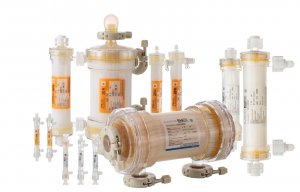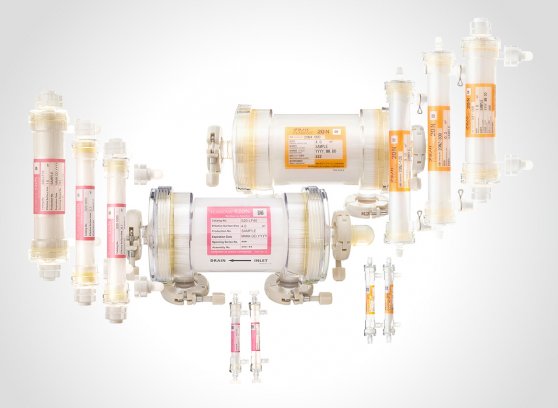
Expansion of spinning for anti-coronavirus filters
Targeting virus filtration for plasma-derived therapeutics and biologics

29th July 2025
Innovation in Textiles
|
Nobeoka City, Miyazaki, Japan
Asahi Kasei Life Science plans to construct a new spinning plant for its Planova virus removal filters in Nobeoka City, Miyazaki, Japan.
This will be the company’s fourth spinning plant for hollow-fibre cellulose membrane filters and construction is scheduled to begin this month, with operations starting in January 2030. The initiative is backed by a grant from Japan’s Ministry of Economy, Trade and Industry (METI).
Hollow fibre membranes are already widely used in filtration applications such as water treatment, dialysis and gas separation due to their high surface area-to-volume ratio and efficient separation capabilities. The spinning process is critical to producing the fibres for them with the necessary structural and functional properties.
Spinning typically involves a phase inversion method, where a polymer solution (dope) is extruded through a spinneret to form a fibre. This spinneret has a concentric design that allows the polymer to form an outer tube while a bore fluid simultaneously forms the hollow core. As the extruded fibre enters a coagulation bath, usually water or another non-solvent, the polymer undergoes phase separation, solidifying into a porous structure.
This highly controllable spinning process enables the production of hollow fibre membranes tailored to specific filtration needs, offering compact and energy-efficient solutions for modern separation processes.
Planova filters, in particular, are highly regarded in Japan and internationally for their outstanding virus removal performance and protein permeability as cellulose-based hollow fibre filters. In 2021, the company launched the next-generation cellulose membrane Planova S20N, followed in 2024 by Planova FG1, featuring higher flux.
Biopharmaceutical market
According to a report by Market.US, the global biopharmaceutical market is forecasted to surpass US$500 billion by 2032, with compound annual growth of 8.2% from 2022 to 2032. This will drive a sharp increase in demand for developing and commercialising new drugs, resulting in the need for virus removal filters essential in manufacturing biologics. With strong market growth projected to continue, Planova is well-positioned as one of the global leaders in virus filtration for plasma-derived therapeutics and biologics. The new plant will significantly expand the company’s production capacity in response to accelerating global demand, focusing on the production of Planova filters S20N, 15N, 20N, 35N, and 75N.
“This new plant reinforces the momentum behind our newly established Life Science business,” says Yusuke Kanazawa, head of the bioprocess division at Asahi Kasei Life Science Corporation. “It demonstrates Asahi Kasei’s commitment to making strategic investments while responding to rising global demand for virus filtration. This project was selected under METI’s Biopharmaceutical Manufacturing Project, which supports the development of domestic infrastructure critical for vaccine production during public health emergencies. Through this government-backed initiative, we are strengthening our supply resilience and enhancing our competitiveness in the global biopharmaceutical market.”

Business intelligence for the fibre, textiles and apparel industries: technologies, innovations, markets, investments, trade policy, sourcing, strategy...
Find out more